Who could have imagined that Angola would have become a financial pariah: broke, and so broke that even global financial markets see the country as a basket case. In business terms if the country was seen as a business it would be quickly granted a bankruptcy status.
Is this the new reality? Transactionalism gone amuck. Bondholders and financial institutions jumping ship and attempting to pull in any outstanding debt that can be salvaged. How did it come to this?
Angola’s Dilemma
The Financial Times (London) expressed Angola’s present status as follows:
You are one lender, among a group of lenders, who, at some point in time, extended a syndicated loan of mysterious purpose and unknown quantum to the oil-rich but currently quite broke African nation of Angola. At some point later on, you and all the other lenders ended up subject to international sanctions — whoops! — and the loan imploded in some way. At some point recently, you accused Angola of a sovereign default over the fiasco, in an arbitration filed… somewhere, but not in public registries at the World Bank or UN. Who are you? We know you’re out there, because Angola recently used a prospectus for the issuance of nearly $2Billion in bonds to bury the rather unfortunate detail that someone has accused the country of default.
Angola’s Landscape
Since its independence in November 1975, Angola has struggled with various extremes: an internal civil war, a brokered peace in a country so blessed with natural resources and beauty, and a dichotomy featuring extreme poverty and an immense wealth with the country’s leadership—built on the back of the oil and gas industry. What is the legacy?
Angola’s track record is not an envious one: for most Angolans, life expectancy is among the lowest in the world, and infant mortality is among the highest. $30Billion of public money is unaccounted for.
The International Monetary Fund (IMF) reports that Angola has one of the highest debt levels of Sub-Sahara Africa: 73.7% of GDP in 2023.
Public sector debt which includes Sonangol and TAAG (the national airline) for 2025 is $52Billion; in 2024 it was $59Billion and in 2023 $74Billion.
Angola is hoping to maintain oil production not lower than 1.1Million Barrels Per Day (MMBOPD) for 2025, a markedly low expectation considering that its output considerably from the 2MMBOPD it achieved 17 years ago.
As of 2022, over 15.1Million people in the Southwest African country lived in extreme poverty, with the poverty threshold at $1.90 daily. The number of Angola’s poor people has been following an upward trend. In 2016, there were around 10Million Angolans in extreme poverty. By 2026, it will increase to 16.3Million.
The Chinese Connection
While China has not been directly named in the current saga, China’s footprint casts a long shadow over Angola.
Angola’s long-running financial relationship with China has been built on a simple equation: repaying its growing Chinese debt with oil. Angola owes Chinese lenders $17Billion and Chinese loans constitute about 40% of its total debt. S&P, the international credit rating agency, reckons that overall debt payments consume about half of Angola’s national budget.
Chinese lenders gave Angola a three-year reprieve on loan payments which ended in 2023. According to media sources Angola has been forced to cover interest payments on its debt by borrowing from a Chinese-held $1.5Billion escrow fund mandated as collateral for its loans. Yearly debt payment to China is estimated at $10Billion.
China has been shifting its oil imports away from Angola and other African nations, according to the Carnegie Endowment for International Peace, and more from Russia, the Persian Gulf and Asia. The shift has been driven, in part, by African countries’ lack of investment in new oilfields and infrastructure, aging equipment and shrinking oilfields.
Carnegie Endowment researchers explain that the shift also reflects the lopsided relationship between China and African countries. While China remains the largest export market for Angola and other African nations, Africa as a whole amount to less than 5% of China’s imports.
Angolan Finance Minister Vera Daves de Sousa recently told the Financial Times that Angola agreed with its largest creditor, the China Development Bank, to release cash held as collateral for its billions of dollars in loans.
Daves de Sousa said the escrow will release $150 to $200Million a month to meet those debt obligations. The plan does not include a restructuring on the debt. Instead, Daves de Sousa said, the plan is designed to pay off the Chinese debt more quickly and avoid default.
More recently, Dorivaldo Teixeira, Director-General of the Angolan Debt Management Unit, stated that the debt with China, Angola’s main creditor, has been on a downward trajectory and could be completely wiped out by 2028.
China’s Evolving Relationship with Africa
At the 9th annual forum on China African Cooperation (FOCAC) convened in Beijing in September 2024 the first signs of African disillusionment with China became apparent.
A $51Billion investment pledge from China to Africa, for the next three years was made. Yet only $10Billion constitutes new investment, and mostly from the private sector. Apparently, the era of massive resource deals, large loans, and grand infrastructure projects has been replaced by a new focus on financial and environmental sustainability.
It was reported that China planned to waive intergovernmental interest-free loans for 33 African countries but this waiver represents only five percent of the total loans China has extended to the continent. Beyond financial aid, China’s strategy now includes political and security cooperation: training African military forces, participating in peacekeeping missions, and combating terrorism.
For the first time China announced its support grants and loans in Yuan. Currently, international payments in RMB represent 6% of all currency transactions, while the Euro only represents 5.3%. This marks a significant step towards de-dollarization and promotion of the Yuan.
Eckhardt Bode, author of a study entitled “The Motives for Chinese and Western countries sovereign lending to Africa”, published by the Kiel Institute for the World Economy (IfW Kiel) in May states the following:
“China’s motives for lending to African countries during the 2000s differed considerably from those of Western countries. China’s lending was more strongly driven by economic interests…. China lent more likely to African countries with richer resources, lower risk of default and higher willingness to pay for credit. By contrast, the Western countries lent more likely to resource-poor and highly indebted African countries. This hints at development assistance but may also reflect other motives that are not yet well-understood. I additionally find evidence for geopolitical motives for lending, which differ as well between China and the Western countries. China’s lending supported its One China principle and rewarded its supporters in the UN General Assembly while the Western countries’ lending favoured African countries with better institutions.”
The list of African countries seeking financial assistance is growing:
Ghana’s national debt currently stands at $45Billion and in October 2024 negotiated a debt relief deal worth $13Billion.
Countries like Chad, Ethiopia, Malawi, Kenya, and Mozambique are also in talks with the World Bank, IMF (International Monetary Fund) and other international financial institutions.
Yet in the past IMF support, usually linked to structural adjustment programmes, which often come with high social costs, has faced strong resistance from local populations.
The Argentina Solution: An Angolan Nightmare?
Between 1860 and 1930, Argentina became an economic powerhouse and was one of the ten wealthiest countries in the world—on a per capita basis—ahead of France, Germany, and Italy.
By the 1930s a series of boom-bust cycles occurred because of unsustainable government spending and an overreliance on commodity exports such as beef and wheat. The 1970s and 1980s saw stagnating growth, rising debt, falling real incomes, and periods of hyperinflation.
In the 1990s, the government abandoned its previous state-led development model in favor of a series of market-friendly reforms: trade liberalization, deregulation, and privatization; officials also pegged the Argentine peso to the U.S. dollar in an attempt to stabilize the economy. However, a devastating economic crisis followed in 2001 when Argentina could not maintain the peg and was unable to pay $95Billion worth of debt.
A 2005 restructuring only received the support of around two-thirds of Argentina’s bondholders, leading to more than a decade of legal wrangling that blocked Argentina from borrowing from international markets.
Is this the future Angola is about to face? From bondholders and international banking and multilateral institutions, as well as China. Little mercy can be expected. An extended auction of debt over an extended period of possibly years?
In the age of Trump there is no rule book and no precedents for an orderly settling of financial problems. No jurisdiction and no mercy. Yes, unorthodox and unbridled capitalism is about to descend on Angola.
Gerard Kreeft, BA (Calvin University, Grand Rapids, USA) and MA (Carleton University, Ottawa, Canada), Energy Transition Adviser, was founder and owner of EnergyWise. He has managed and implemented energy conferences, seminars and university master classes in Alaska, Angola, Brazil, Canada, India, Libya, Kazakhstan, Russia and throughout Europe. Kreeft has Dutch and Canadian citizenship and resides in the Netherlands. He writes on a regular basis for Africa Oil + Gas Report, and guest contributor to IEEFA (Institute for Energy Economics and Financial Analysis). His book ‘The 10 Commandments of the Energy Transition ‘is on sale at

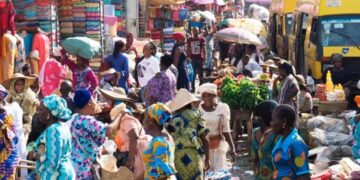

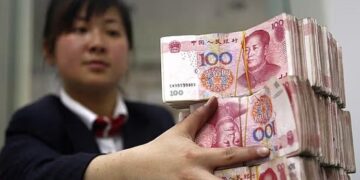
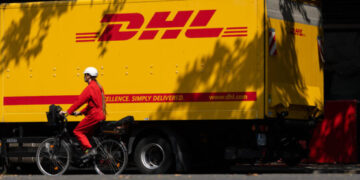
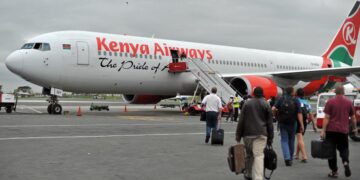
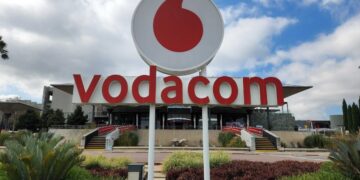

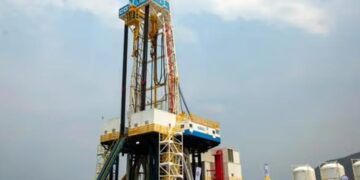
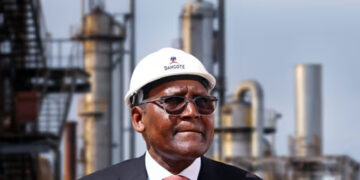
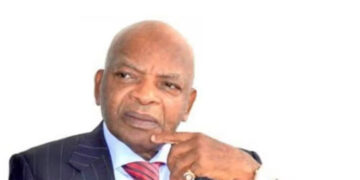
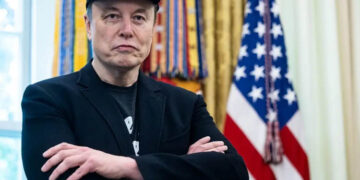


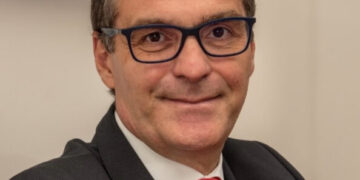
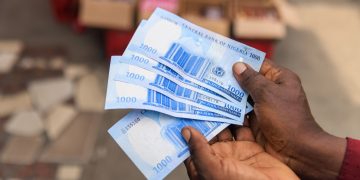


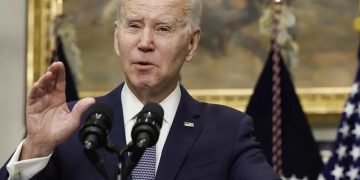
![[Kenya] Digital credit provider Tala disbursed Sh240 billion in loans in eight years 19 [Kenya] Digital credit provider Tala disbursed Sh240 billion in loans in eight years](https://theafricanbusiness.com/wp-content/uploads/2023/02/TALA-APP-360x180.jpg)













